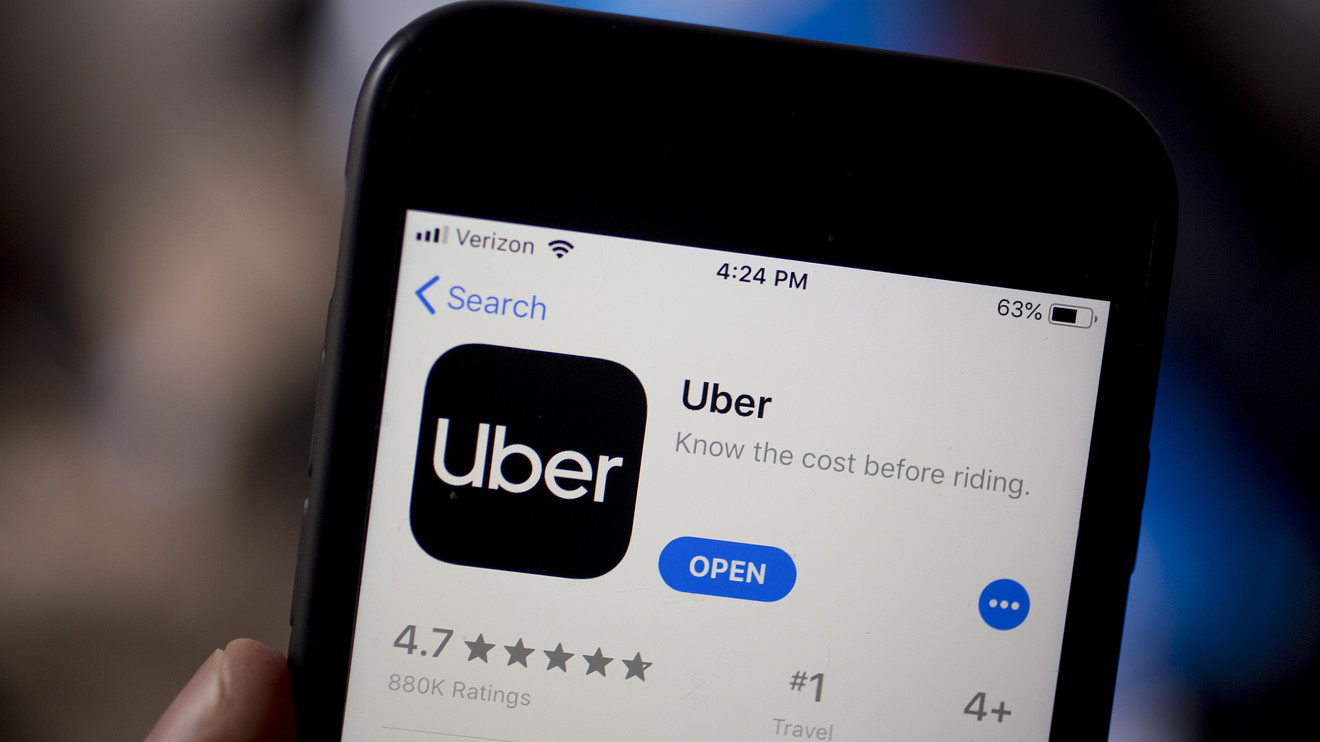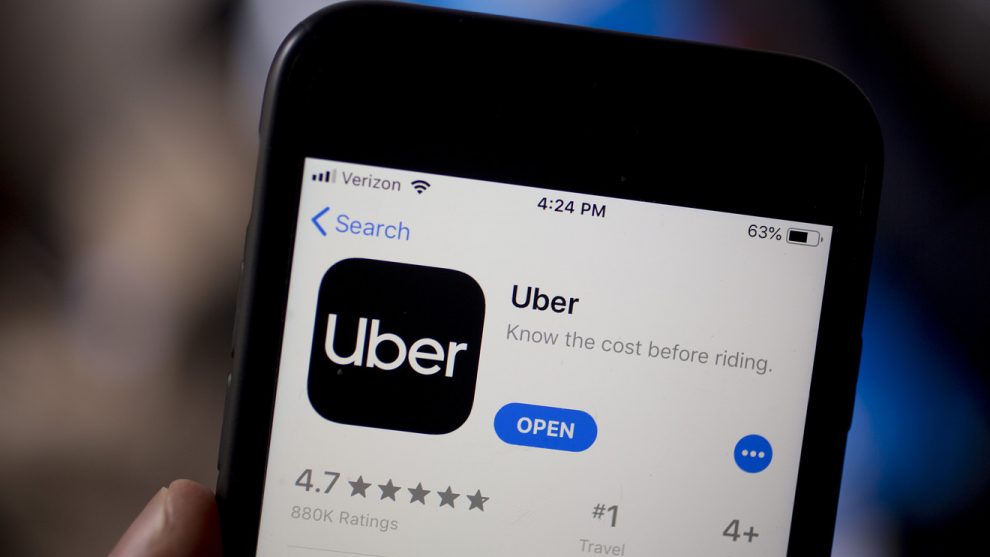
Uber Technologies Inc.’s shares skidded Friday in their first day of trade, after the ride-hailing giant made its public debut.
The stock fell more than 7% in the session after opening at $42, representing a disappointing start for the company, which had already priced its initial public offering toward the low end of its expected range of $44 to $50 a share.
Uber raised $8.1 billion in its offering at an IPO price of $45 a share. At a recent stock price of $41.57, the company had a market capitalization of almost $70 billion, based on the 1.677 million shares it had outstanding after completion of the offering. Uber’s IPO was the biggest IPO for a U.S.-based company since Facebook Inc. FB, -0.16% went public in 2012.
Read more: 5 things you need to know about the Uber IPO
Underwriters, led by Morgan Stanley, Goldman Sachs and BofA Merrill Lynch, have access to another 27 million shares offered by selling shareholders to cover overallotments, which could push the total raise even higher.
Prior to Uber Technologies Inc.’s initial public offering, some thought that the company had the size and name recognition to withstand whatever the market threw at it. Uber’s disappointing debut on Friday showed that the company was indeed vulnerable.
“The idea that these big brand-name companies could go out whenever they wanted, maybe that’s not necessarily true,” said Barrett Daniels, a partner with Deloitte & Touche who focuses on technology IPOs. “Windows matter.”
Adam Augusiak-Boro, a senior associate at EquityZen, argued that Uber was still able to weather “unfortunate” geopolitical developments better than a lesser-known company would have. “Uber’s sheer size and the large segment of the investing public that believes in its long-term strategy helped Uber stay its course,” he told MarketWatch in an email. “Smaller companies that are further out of the public eye don’t have these advantages when the markets start to get choppy.”
See also: Lyft stops providing key data after IPO, then insults investors’ intelligence
Uber’s pricing was seen as cautious by many in the investment community, which could be a result of a disappointing debut for rival Lyft Inc. LYFT, -7.41% which has seen its shares struggle after pricing its IPO at $72 a share, which gave the smaller company an initial valuation of about $24 billion. Lyft delivered a mixed earnings report late Tuesday that indicated rider incentives appear to be lessening in the market, which could bode well for Uber.
“We view Uber’s conservative pricing as a smart and prudent strategy coming out of the box as it clearly learned from its ‘little brother’ Lyft, and the experience it has gone through over the past month,” Wedbush analyst Daniel Ives wrote in a note soon after Uber priced its shares.
Wedbush analysts believe Uber is worth more than $100 billion, and rates the stock as Outperform.
The ride-hailing giant saw its revenue climb to $11.3 billion in 2018 from $7.9 billion a year earlier, representing a growth rate of 43%, but it has struggled with gigantic losses. Uber reported $1 billion in net income last year, but that was largely due to the sale of Russian and Asian operations; the company recorded an operating loss of $3 billion in 2018, and had an accumulated deficit of $7.9 billion as of the end of last year.
Read: Lyft short selling builds after Uber files IPO paperwork
Uber’s initial public offering follows a strike by some of its drivers, who were protesting the big payouts that executives and investors were to receive upon completion of the offering as well as the company’s classification of its drivers as contractors. Because Uber doesn’t designate its drivers as employees, it isn’t required to abide by minimum-wage rules or provide other benefits.
In a filing with the Securities and Exchange Commission, Uber disclosed earlier Thursday that it has reached a settlement with “a large majority” of 60,000 drivers who had entered into arbitration against Uber seeking to be classified as employees. Uber said it expects to pay up to $170 million in that settlement.
Uber’s prospectus included some wonky metrics, including a “core platform take rate” of 20% last year. The company’s core platform mainly consists of its ride-sharing and Uber Eats businesses.
In some instances, due to the incentives that Uber offers its drivers, those drivers take home more for a given fare than Uber actually charged the customer. The company is also investing heavily in its business, which include newer efforts in freight and scooters as well as longer-term ambitions around autonomous driving.
PayPal Holding Inc.’s PYPL, +0.62% $500 million purchase of fresh Uber stock just adds to a number of tech heavyweights that have a piece of the company, including Google parent company Alphabet Inc. GOOGL, -0.03% GOOG, +0.16% which invested early in Uber and received shares in a settlement of a bare-knuckles fight between the companies over autonomous-driving technology.
Ahead of the offering, Alphabet held about 5.2% of the company, which was behind other investors and early executives. The largest stakes belonged to SoftBank Group Corp.’s 9984, -5.41% Vision Fund, which held 16.2% before the offering, and venture investor Benchmark Capital Partners, which held 11%. The sovereign-wealth fund of Saudi Arabia holds about 5.3% of the company, while co-founders Travis Kalanick and Garrett Camp — who remain as board members but no longer have operational roles with the company after controversial tenures — held 8.4% and 6% respectively.











Add Comment